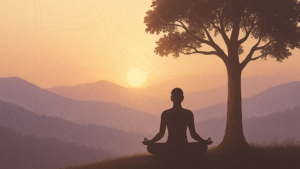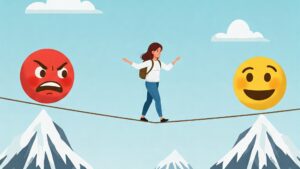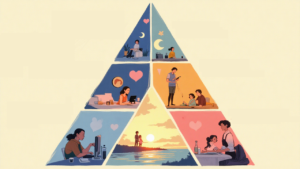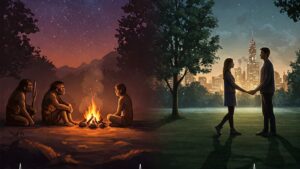Author’s Note
I occasionally write and share my personal experiences and reflections related to spirituality, inner exploration, and daily life. These writings are not teachings or instructions, nor do I claim to be a guide or authority on these subjects. What I share is simply a snapshot of my current understanding, which may evolve with time. Please read it as one seeker’s honest journey—not as a prescription, but as a perspective.
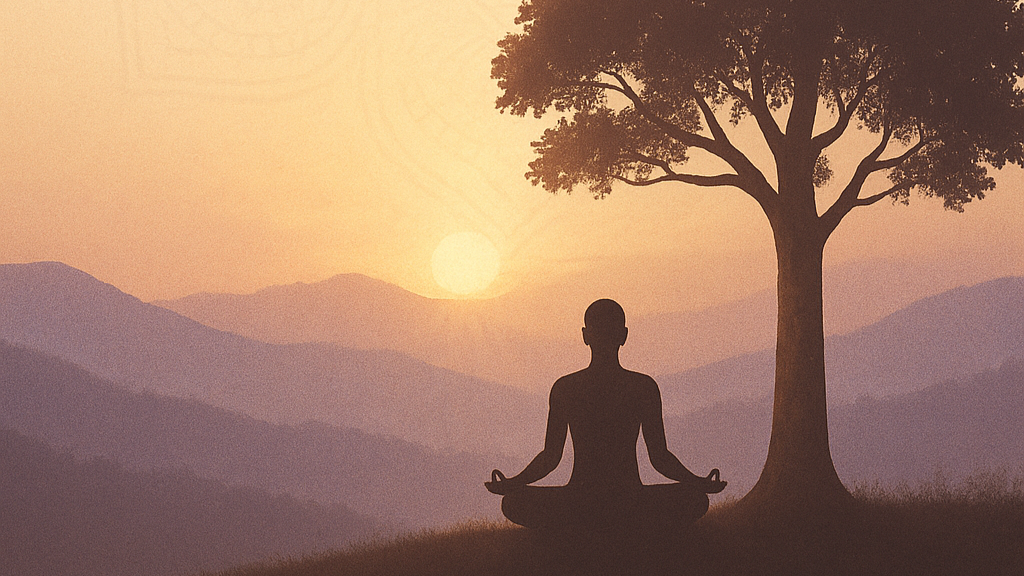
Day – 02-05-25
Frustration and the Decision to Practice Mouna
For about a week, particularly the previous two days, I had been feeling frustrated about my spiritual journey. I sensed I wasn’t doing the right things and was acting out of desire, which only fed more desires.
I spent time contemplating what to do—something I typically do on weekends and evenings—but this time, no decision brought relief. Everything felt wrong.
That day, I decided that whenever I felt frustrated or inferior, I would practice extended mouna (silence). So for the first time, I engaged in a long period of mouna combined with self-inquiry. I had some understanding of how to hold the ‘I’-thought, though I wasn’t entirely clear that this was the method, and I thought I might simply rest instead.
Initial Practice and Self-Inquiry Process
I lay down between 4:00 and 5:00, then intentionally until 6:10, having decided not to wake too early. First I sat, then lay facing the ceiling with loose limbs and a cloth over my eyes to block the light. I attempted to hold the ‘I’-thought in what I believed was the correct method. When other thoughts arose, I tried to witness them without attachment, rising above them and asking to whom they were coming. I would answer “to me,” then ask again, “Who am I?” (exactly—”kaun hun mein“).
Though I was asking verbally, it wasn’t merely verbal questioning. It was a tool to refocus on the ‘I’-thought, which I confirmed today (05/05/25) while reading “Happiness and The Art of Living” by Michael James. I understood that merely asking verbally wouldn’t accomplish anything, but it could serve as a refocusing tool, and I had read that self-inquiry is mental in its early stages.
The Intense Inner Experience
After perhaps 15 to 20 minutes, my heartbeat suddenly accelerated. I felt disconnected from the outer world. I could perceive that I was not the body—my body seemed paralyzed while I felt myself rising, glimpsing something from another realm. It was as if I were leaving my body, with something covering my eyes and my entire being.
I began shaking as the experience intensified. My teeth clenched, my heartbeat raced, and I felt an intense fear—not exactly of death as if someone were killing me, but a fear that I would vanish or reach some kind of end. If this is what they call the “fear of death,” then surely this was that experience.
Persistence Amid Fear and Mental Distraction
Throughout this, thoughts continued to arise, but I kept refocusing on the ‘I’-thought, sometimes using verbal cues to redirect my attention. However, focusing became more difficult than before. I remembered reading Ramana Maharshi’s instruction in “Be As You Are” (compiled by David Godman) that whatever happens, one should ask to whom it is happening and return to the ‘I’-thought.
I repeatedly felt the urge to stop, thinking, “It’s okay, I’m doing things right now, which is what made me frustrated before. I should just let go.” This thought recurred, but I persisted, feeling like a warrior. There was also a kind of happiness, I believe from feeling I was on the right path.
Post-Experience Calm and Realization
Gradually, my heartbeat normalized, but the sensation of being above or separate from my body persisted for quite some time. I could have intentionally moved if I had tried, but I chose not to. I continued attempting self-inquiry, though increasing thoughts made focusing on the ‘I’-thought harder. After some time, when many thoughts kept arising, I moved my body slightly, stretching while still lying down. I decided not to get up until someone called me or bodily needs (hunger or toilet) compelled me. Later, I got up to use the toilet.
Afterward, I felt a certain ease, mostly happiness. The first thing I did was ask my mother, “kuch khai le chho?” (Is there something to eat?).
A Subtle Inner Shift
From that point on, I felt different—I began to prefer solitude, and something had genuinely shifted. I can’t precisely define it, but life was no longer as it had been. In subsequent days, this feeling would come in waves, sometimes intense, sometimes nearly normal, which I’ll discuss later. I’m writing this on 05/05/2025, and I mention this because that calm feeling continued throughout the day without returning to my previous normal state.
Letting Go of Intellectual Crutches
That same day, I decided to stop reading psychological books and Osho’s works that deal primarily with intellectual matters (I believe these are meant to attract people to spirituality initially, but later one needs different books or teachings). I also stopped analyzing the bonds or desires that drove me, feeling this would now hinder rather than help my progress.
Two factors strongly influenced this decision: first, I had heard Acharya Prashant say that things which help you climb to a certain level of the mountain can later become burdens in your spiritual journey; second, I had read Osho saying that a time comes when a spiritual aspirant becomes distressed with questioning and answering about truth, as this has value only up to a certain level, after which one should focus on meditation.
Written on – 05/05/25
